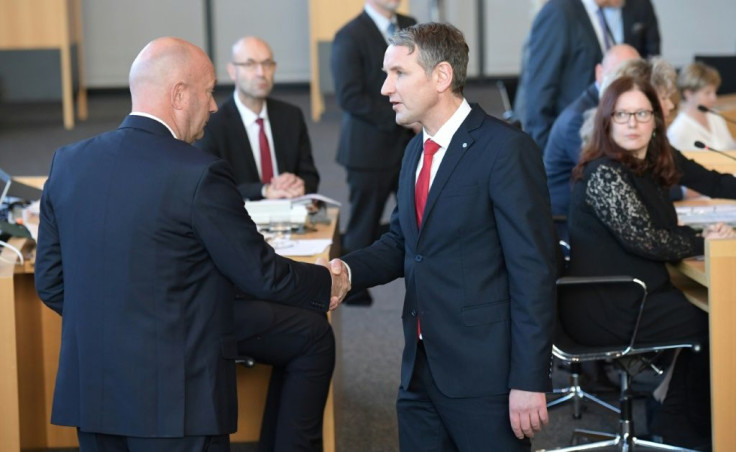Far-right Upsets German Vote For Regional Premier
The tiny central state of Thuringia broke a German political taboo Wednesday when a candidate for the regional premiership was unexpectedly heaved into office with help from the far-right AfD party.
Thomas Kemmerich, a politician from the economically liberal Free Democratic Party (FDP), scored 45 votes, leapfrogging incumbent Bodo Ramelow of the Left party by one vote.
"This is the first time in the history of modern Germany that a state premier has been elected with AfD votes," political scientist Andre Brodocz told broadcaster MDR.
The AfD's own candidate received zero votes, indicating the party's state legislators aligned as a bloc behind Kemmerich.
While the vote was secret, the liberal candidate must also have enjoyed support from lawmakers belonging to Chancellor Angela Merkel's conservative CDU, as well as his FDP stablemates.

Media were quick to describe the event as a "political earthquake", as mainstream parties had so far refused to countenance working with anti-immigration, anti-Islam and anti-EU AfD at any level.
The dam breaking in Thuringia is all the more surprising to observers as the AfD's leader there, Bjoern Hoecke, is one of the party's most radical figures, heading a loose movement within the party known as the "Wing".
He has called for a "180 degree turn" in Germany's culture of remembrance for the Holocaust and other crimes of the Nazis, which form a central pillar of the country's post-World War II political life.
But Thuringia also belongs to Germany's former communist east, where rejection of the far right has not taken such deep roots as in the west in the decades since the country's 1990 reunification.
As in other states, the autumn 2019 state election brought a surge for the AfD.
But in light of the firewall towards the far right, incumbent state premier Ramelow had been widely tipped to be reelected at the head of a minority government.
© Copyright AFP 2024. All rights reserved.











